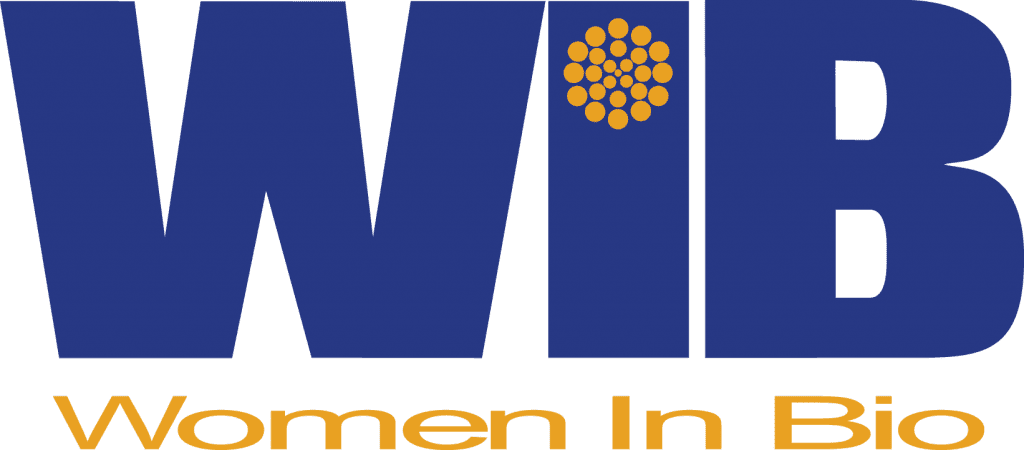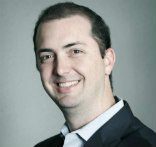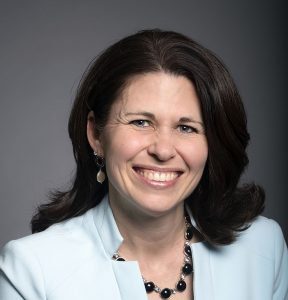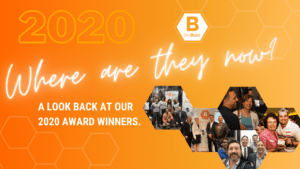
WIB-Capital Region: Member Spotlight with Brenda Huneycutt
Tuesday, September 9, 2020
Authored by: Nivedita Hegdekar
Tell us about your background (both educational and professional).
I completed my PhD in Molecular Biology at the University of Colorado, Boulder, where my dissertation project focused on cell cycle control and protein kinases. During my 5.5 years at graduate school, I had a great relationship with my PI and really enjoyed my research work. Even back then, graduate students were advised to consider alternative careers in science such as science writing, industry, etc. As luck would have it, I happened to network with a patent attorney who opened my eyes to the legal side of science. His passion and advocacy for his profession ignited my desire to study patent law.
After completing my PhD in 2003, I moved back to Maryland (my home state!) to obtain my JD at George Washington University. Following that, I began working as an Associate at Finnegan, Henderson, Farabow, Garrett & Dunner, LLP, where I used my biology background to represent pharmaceutical and biotech companies through patent prosecution and litigation. Exciting as working for a big legal firm was, my interest slowly gravitated towards the policy side of the law. In 2010, I enrolled at school (again!) for a part-time Master of Public Health program at Johns Hopkins University. I enjoyed the program so much I left my job and completed the degree full-time. I worked briefly at the Genetic and Public Policy Institute associated with the Bioethics Center at Johns Hopkins and then moved to consulting as I thought consulting would combine my scientific, legal, and public policy skillset. And so for 6 years, I learned a lot working as a Consultant at Avelere Health, where I worked on FDA policy and regulatory strategy. In 2018, I accepted an amazing job opportunity at FasterCures, a Center at the Milken Institute, and it has been a great experience all around.
What are your top three tips for women who are just starting their careers?
- Network, network, network! Be helpful to others and nurture relationships with a broad set of people; you never know when you can help someone or vice versa. And look for mentors and sponsors as you continue to advance in your career.
- Think about what you would like to get out of each job that you take. Draft a list of goals and skills you want to develop and pay close attention to what you like and don’t like. This way you can start to build a vision for your ideal role for each subsequent job search.
- Sometimes a job simply doesn’t set you up for success. After a reasonable period of trying, if a job still doesn’t make you happy, look for something else. Moving on should not make you feel like a quitter or that you are letting people down. I’ve seen many people who struggled during their early jobs to move on and to excel in different roles in different places. So, don’t be afraid to take that leap of faith in finding a role that better fits and fulfills you!
What are some of the biggest challenges women still face in the life sciences?
This answer might be a bit general based on my experience working across multiple sectors, so it might not apply everywhere. From my observations, there still exists an unconscious bias that women in the workplace have to deal with. Despite their achievements, women may be subtly deprived of the opportunities to bring their experiences and insights to the table and they have to work harder to prove themselves, compared to their male counterparts. I have seen male supervisors connect more easily with their male employees and unconsciously end up providing more guidance and career opportunities to these colleagues than to equally qualified and competent female employees. However, things are changing. In my current role, I see a lot of qualified women in higher positions, so I do think that we are progressing to overcome the challenges for women in the workplace but it takes meaningful reflection and action.
What is the most exciting and personally fulfilling part of your work right now?
One of the things that attracted me to my current place of employment- FasterCures, a Center of the Milken Institute- was its mission to accelerate medical research and treatments to patients. As part of our work, we identify and breakdown roadblocks and barriers in the system that delay getting drugs and medical products to those who need them as rapidly as possible. We utilize our Milken Institute conferences throughout the world to elevate these important issues and bring experts together to advance these discussions. At FasterCures, I lead a varied portfolio of projects, including one that aims to address the antimicrobial resistance crisis and bring new antibiotics to patients- an issue I am extremely passionate about.
Since mid-March, my focus has shifted almost exclusively to COVID-19. As part of an initiative to help health professionals, patients, policymakers, and other stakeholders we created a database of potential treatments and vaccines being developed for COVID-19. What started out as an internal Excel spreadsheet grew into this massive publicly available database that tracks the progress of over 500 different candidates! My work has been a small part of the greater picture of the many people working for a vaccine or treatment- it’s been a labor of love and effort, and I am extremely proud of it. The online tracker received a lot of positive feedback but honestly, the most satisfying aspect has been hearing how the tracker has benefited so many people!
What role did mentorship play in helping you to achieve your career goals?
Mentorship played a crucial role in my career development. My past mentors have been instrumental in getting me out of my head and offering a fresh perspective on my decisions or any challenge at hand. Beyond that, mentorship has helped me broaden my network, foster valuable connections, and improve my work-life balance! My positive experience has also inspired me to pay it forward. As a current mentor, I love connecting people, sharing lessons I’ve learned, and helping them grow professionally. I really thrive on seeing others succeed and meet their goals!
What does success mean to you?
For me, success is defined as having a positive impact on people- whether it be helping an individual find their voice or strength or contributing on a more population level (to help break down barriers in drug development). A Maya Angelou quote comes to mind- “I’ve learned that people will forget what you said, people will forget what you did, but people will never forget how you made them feel.” Big or small picture, helping people and making a positive impact encompasses my definition of success and motivates me to keep doing what I do.
Tell us how you got involved with Women In Bio, what you do for the organization, and what being a part of WIB means to you.
I joined Women In Bio fairly recently! Prior to becoming a member, I had enjoyed attending the in-person events and webinars hosted by the organization and was an avid reader of the daily SmartBrief. I was drawn to the organization because its mission – to serve as a platform to support and elevate women in all levels of science. In joining the organization, I see an opportunity to learn, network, and most importantly, to contribute. Helping people, as I mentioned earlier, fits perfectly with my definition of success and I am really excited to be a part of this organization!
See the original article here.

Women In Bio is an organization of professionals committed to promoting careers, leadership, and entrepreneurship for women in the life sciences.
- About the Author
- Latest Posts
Over the past 11 years, Chris has grown BioBuzz into a respected brand that is recognized for its community building, networking events and news stories about the local biotech industry. In addition, he runs a Recruiting and Marketing Agency that helps companies attract top talent through a blended model that combines employer branding and marketing services together with a high powered recruiting solution.




